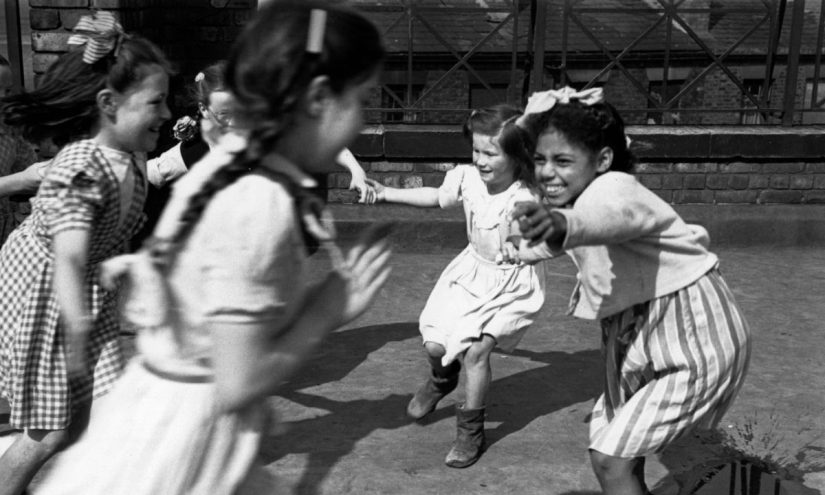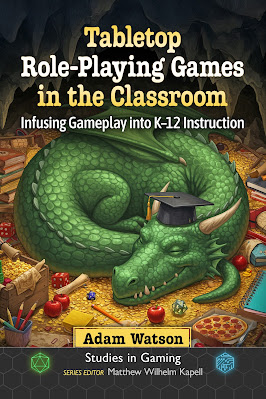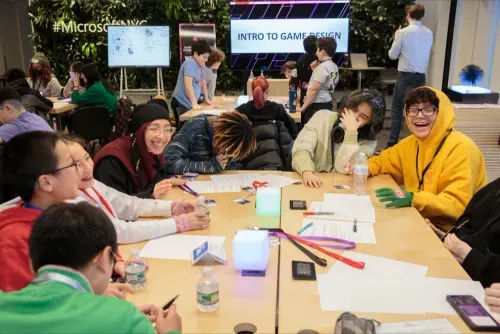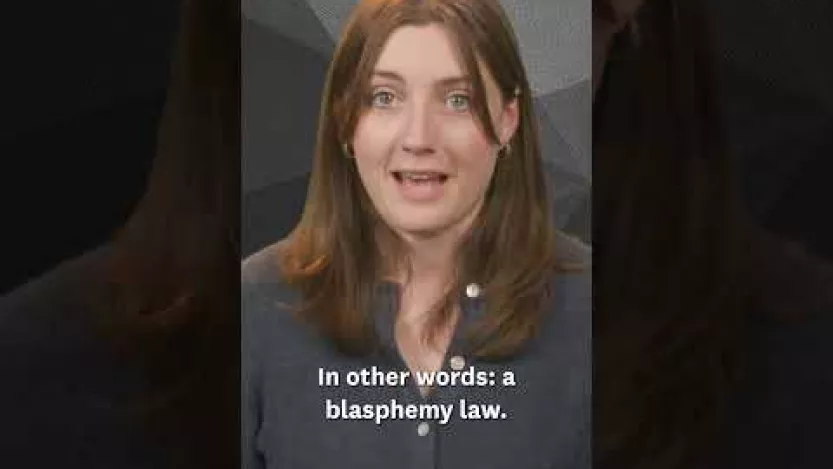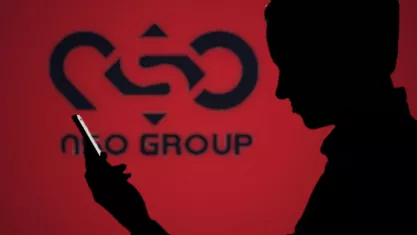This article was updated December 2025.
Game-based learning turns potentially tedious study time into an adventurous knowledge quest, complete with catchy soundtracks and digital rewards. It helps keep kids engaged with the subject matter and motivated to pursue greater expertise. Best of all, web- or app-based gameplay integrates easily into both online and in-person classes.
We’ve curated the best K-12 educational game sites and apps, arranged according to cost. Many are free (or offer free basic accounts), while some provide progress tracking and analysis tools for teachers. All are remarkably creative and will help kids enjoy learning.
Best Free K-12 Education Games
LangGuesser
Listen to a brief clip of someone speaking, then click on a country where that language is spoken. It may “sound” easy, but it’s surprising how tricky it is to distinguish unfamiliar spoken languages from one another. No account required, but do create an account in order to track your progress. A great exercise for any language class.
Brilliant
Brilliant employs colorful professional graphics and gamified learning to help kids master STEM topics such as algebra and computer science. Exercises start with the basics and gradually build to more complex problems. Each answer, whether correct or incorrect, has an accompanying explanation to aid in understanding the topic. Best of all, Brilliant provides completely free access to its premium account for educators and administrators with school email addresses.
GeoGuesser Name The Countries – Geography Quiz Game
There are 195 recognized countries in the world. How many can you identify on an unmarked map, and how fast can you do it? Eight different versions add to the possible challenges. A great way to learn and practice geopolitical knowledge. Free, no account required.
Quizzity
A super simple but challenging geography quiz. How close can you place the pin to the city-level location provided? The worldwide map includes nothing but political borders to the province/state level. What I liked about this game is that players earn points for being close, even when incorrect. In this way, users are encouraged to keep trying and learning.
Vocab Scrabble
Can you improve your English vocabulary by playing online Scrabble? Yes, according to AE Studio’s Vocab Scrabble, a simple-yet-challenging digital version of the beloved word game. The rules are elementary. Or shall I say basic? Perhaps fundamental? Click “start playing” and the five-minute countdown begins. Like Scrabble, the player receives a selection of letters with which to compose words. Unlike Scrabble, the selection changes after each word created. No account required.
New York Times Games Subscription | iOS Android
While not strictly speaking educational games, these standout puzzles from The New York Times clearly require users to exercise language, math, and logic skills. Non-subscribers can play the following inventive games for free: Wordle, Sudoku, Connections, Pips, Strands, and the daily Mini Crossword for free. My favorite is Connections, the devilishly tricky word game that asks users to create four sets of related words. Players must carefully consider all possible meanings of each word before making their choices. And be sure to try creating your own Wordle game, which can be shared with friends, colleagues, and students. Games offer difficulty levels, hints post-game analysis. Available via website or app.
Prodigy English
From the makers of the popular Prodigy Math, Prodigy English is a gamified English language learning program that features all the fun bells and whistles of gaming, from creating worlds to boosting energy with correct answers. A suite of teachers’ tools includes assessments and reports. Aligned to Common Core reading and language standards for grades 1 to 6. Best of all, the premium Prodigy English is fully free to educators.
Prodigy Math
An award-winning, standards-aligned online math game designed for grades 1-8, Prodigy is modeled on popular fantasy-style multiplayer games. Students select and customize an avatar, and then prepare to battle math problems. Free basic account includes core gameplay and basic pet features. Prodigy Math is fully free to educators.
Ducksters
This easy-to-navigate site affords a wide range of educational digital games for students or anyone who enjoys gameplay and learning. Included are math, word, geography, and puzzle games as well as classic games such as chess, checkers, backgammon, mahjong, and more. But it’s not just fun and games at Duckster. An extensive collection of illustrated lessons in history, biography, geography, and science are accompanied by quizzes and links to the relevant games. No account required to play or learn.
Khan Academy Kids
An award-winning, free iOs or Android app, Khan Academy Kids offers a comprehensive collection of educational math, literacy, and music games and activities for kids aged 2-8 years. Top-rated by users, this free app includes no ads—and no subscription is needed.
Puzzle Playground
From the publisher of Math Playground, Puzzle Playground is a free game-based learning site that uses puzzles of every kind to engage kids’ imaginations. Don’t think “jigsaw” because these amazingly creative puzzles go far beyond shape-fitting. Instead, these varied digital puzzles will keep kids of any age busy challenging their problem-solving, trial-and-error, spatial reasoning, and perseverance skills. Super fun too.
Best Free Virtual Escape Rooms for Schools
These top free virtual escape rooms combine the best elements of gameplay — suspense, skill, knowledge, and speed. Arranged according to age suitability.
Moose Math – Duck Duck Moose iOs Android
A multi-level math game that allows kids ages 3-7 to earn rewards and decorate cities by solving math problems disguised as adventures. Common Core-aligned for kindergarten and first grade.
Wordscapes iOs Android
Wordscape combines the best features of crossword puzzles, word connect, and word anagram games, all accompanied by scenery designed to relax and focus the mind.
Mind Games
Don’t worry, this site doesn’t advocate gaslighting or psychological manipulation. Rather it’s a collection of free online number, word and logic games, brain teasers, sudoku, crosswords, and more. Free with (blockable) ads. For a premium ad free gaming, visit adfreegames.com, where users pay only $10 for a full year of access.
Solving the Rubik’s Cube!
From educator Ryan Chadwick comes this top-notch digital tutorial for one of the most challenging hands-on puzzles ever. Includes images and advice to boost your speed solving Rubik’s cube. Free, no account required.
Annenberg Classroom That’s Your Right
Kids play alone or in multiplayer mode to learn and practice their Bill of Rights expertise. With high-quality graphics and music and three levels of difficulty, this free game is an excellent way to support civics education for middle and high school students. Additional resources include a Constitution guide, review of Supreme Court cases, and lesson plans.
Funbrain
Browse K-8 educational games by grade level, popularity, and topics such as math, grammar, and vocabulary. New games include chess, sudoku, and What on Earth?! (geography). Free, no registration required.
iCivics Games
A rich resource for social studies education, the nonprofit iCivics was founded by Supreme Court Justice Sandra Day O’Connor in 2009 to educate Americans about our democracy. The site includes an educational portal for learning about civics and standards-based games and curricula.
Little Alchemy 2
Air. Earth. Fire. Water. Simply creative. Simply brilliant. iOs and Android too. For makers and imaginers of any age.
National Geographic Kids
Free quizzes and games in topics ranging from animals and bugs to solving ciphers.
PBS Kids Games
Dozens of free games, from math to social-emotional learning, will delight younger learners. No account required on this user-friendly website. English and Spanish. New games include Nature Sights and Sounds, Puppy Pet Care, Road Repair, and many more.
Play4A
A deceptively simple interface allows users to play surprisingly challenging games for free. In addition, teachers create gamified quizzes, then share the code with their students. A jaunty musical soundtrack adds to the enjoyment.
RoomRecess
Find 140+ free learning games in a wide variety of subjects, including math, language arts, typing and keyboard skills, digital puzzles, and more. Games are grouped by grades as well as topics. Highly popular with teachers and students alike.
Tate Kids
Explore art-based games and quizzes on this super appealing, highly visual site from Great Britain’s Tate Museum. Activities focus on learning and discovery rather than test scores. An exceptional way to get kids thinking about and making art. Free.
HoloLAB Champions (Educators Edition)
Players in this remarkable virtual chemistry lab will measure, weigh, pour, and heat in a series of competitive lab skills games. No safety goggles required—but don’t forget your virtual pair! Free for educators. HoloLAB Champions is available in English on Steam for the Oculus Rift and VIVE VR platforms. Free to educators.
NASA Space Place
NASA invites users to investigate Earth and outer space via games that ask big questions such as, “How does NASA talk to its faraway spacecraft?” and “How does the sun make energy?” Free and fascinating.
Best Freemium K-12 Education Games
Factile
Clue: The best known and loved quiz game show in American history. Response: What is Jeopardy!? Factile, with its sleek, sophisticated interface, allows users to create and share Jeopardy!-like quiz games, in addition to playing publicly available games. Create games manually or allow AI to populate the game board with clues related to your chosen topics. Free account users can create up to three custom games, share and embed games and play public games. Transparent pricing allows for easy comparison among account options, with Home/School Basic at $48 annually and Home/School Plus under $100 annually.
GrooveLit
Groovelit’s COPPA- and FERPA-compliant gamified writing practice helps students in grades 4-10 find their voice. Teachers can create new writing games or make use of ready-made games with adjustable player settings. Customizable to state standards. Groovelit Basic provides unlimited free access to gamified writing practice and unlimited students per game, while Groovelit Go adds individualized feedback/analysis and other premium features.
Education.Com Games
With nearly 1,000 high-quality, engaging educational games covering math, science, social studies, and English, Education has something for every preK-8 student. Basic members can access three free downloads per month, while premium members have unlimited access to all Education.com resources. Premium-only features include Guided Lessons, Collections, and more.
ABCya Free Games of the Week
More than 300 lively educational games and mobile apps for preK-6 students. Games can be searched by Common Core State Standards, as well as Next Generation Science Standards. Six new free games released every week. Free for desktop use, premium plan for mobile devices.
Arcademics
An award-winning, innovative site for K-8 game-based learning in math, language arts, geography, and other subjects, Arcademics includes an educational portal that allows teachers to monitor student progress, generate detailed reports, and assess student learning. Free basic account provides most features and is ad-supported. Free 30-day trial. No credit card required.
Oodlu
An online education gaming platform, Oodlu is perfect for learners of any age with some reading ability. Teachers create their own games using the built-in question bank, and analytics provide progress reports for each student. Free standard account.
Blooket
A wonderful gamified learning/quiz platform with a user-friendly interface, Blooket offers nine different game modes and runs on student devices as well as desktop computers. Free basic account allows for unlimited sets and edits, unique game modes, and question set search for up to 60 players.
Turtle Diary Online Games
An extensive collection of games, videos, quizzes, lesson plans, and other digital tools for preK-5 students, searchable by topic, grade, and Common Core standard. Free and premium accounts.
Gimkit
Created by a high school student, Gimkit bills itself as a game show for the classroom. Kids can earn in-game cash with correct answers and invest the money in upgrades and power-ups. Reports for educators are generated after every game played. A second program, Gimkit Ink, allows students to publish and share their schoolwork. $4.99/month, or group pricing for schools. A 30-day free trial of Gimkit Pro can be converted to a free basic account.
Kahoot
One of the most popular sites for gamifying the classroom. Teachers create games and quizzes and students answer them on their mobile devices. You’ll find a plan for every budget: free basic, pro, and premium.
Knoword
A fine, fast-paced vocabulary game. Educators can create their own word packs and track student progress. Free basic accounts allow play of all public word packs, sharing, and exporting, while the moderately priced Pro and Team accounts allow unlimited word pack creation and assignments.
Legends of Learning
A fine collection of standards-aligned science and math games for K-8 students. Free teacher accounts, with premium features for school and district-level accounts. Bonus: Learn about the games before signing up here. Be sure to check out their free upcoming game-based STEM competitions.
Best Premium K12 Education Games
Geoguessr
A unique and visually captivating geography brainteaser that encourages children to decipher locations using hints from Google Street View and Mapillary visuals. Ideal for fostering cognitive abilities and logical reasoning, while providing an entertaining and immersive experience.
Math Playground
Explore this extensive selection of math, logic, skills, and word games for kids in grades K-6. Created by educator Coleen King, Math Playground is kidSAFE/COPPA Certified and includes only COPPA-certified children’s ads. Shareable in Google Classroom.
Vocabulary Spelling City
Three dozen free games cover topics including vocabulary, spelling, phonics, and language arts. Each game includes several variations, so the total number of games to play exceeds 100. Just start playing- no account needed. Looking for premium content? Head over to the new site for premium games at VocabularyA-Z.com
Buzzmath
Buzzmath provides more than 14,000 interactive math questions, as well as manipulable objects, audio text reading, math glossary, brain teasers, badges, and digital rewards. Teachers can personalize learning for each student with this standards-aligned supplementary math resource.
Sumdog
Sumdog’s standards-based math and spelling practice platform aims to boost student learning and confidence with adaptive personalized gameplay. A hit with kids and research-validated to boot. Free 30-day trial.
MinecraftEdu
A block-based graphics game, designed for education, that allows students to build and explore virtual worlds. Built-in educator controls support a safe and education-directed experience. The abundant classroom resources include lesson plans, training for educators, challenge building, and more.
Skoolbo
Skoolbo offers educational games for reading, writing, numeracy, languages, science, art, music, and logic. Digital books and step-by-step animated lessons support young learners as well. Various plans for classes and schools, with the first month free.
Enjoy our content? Make sure to add Tech & Learning as a preferred source on Google to keep up with our latest news, how-tos, profiles, events, and more.

![]()

